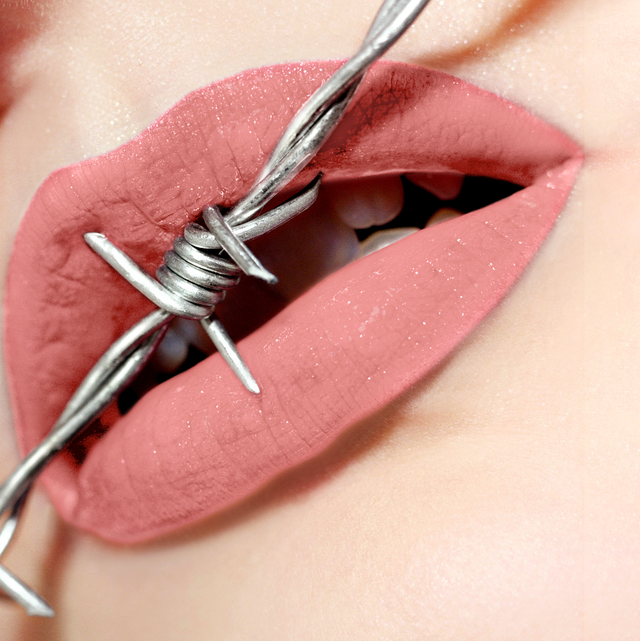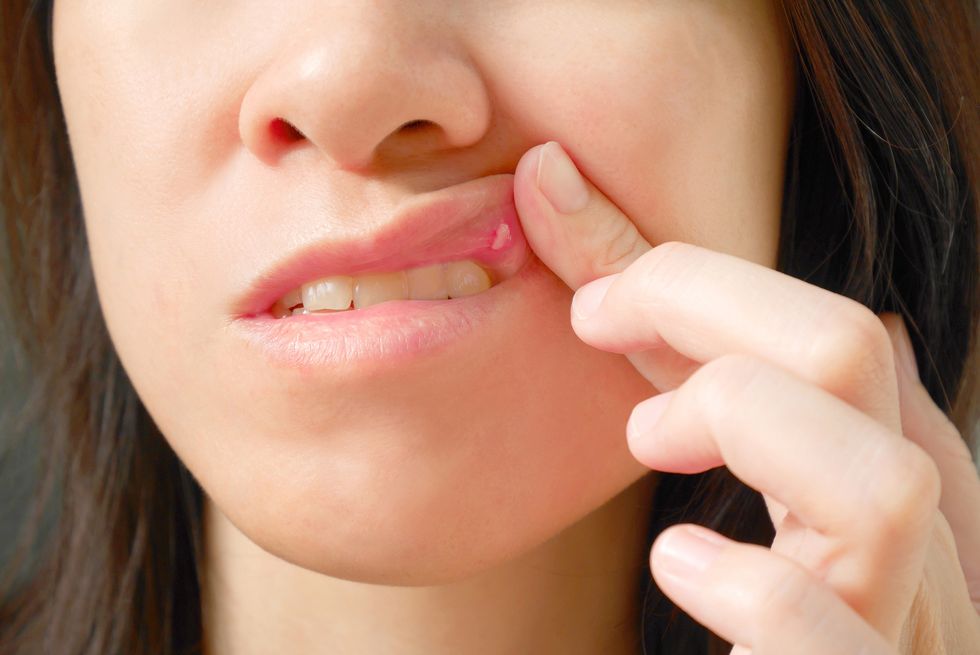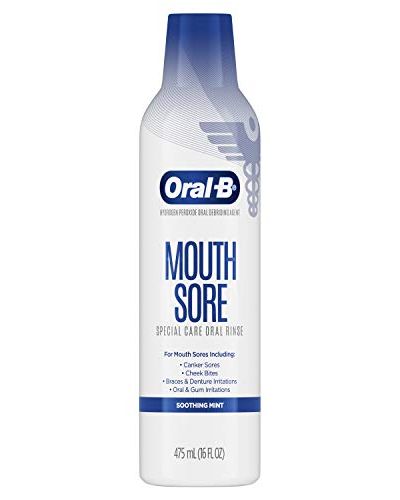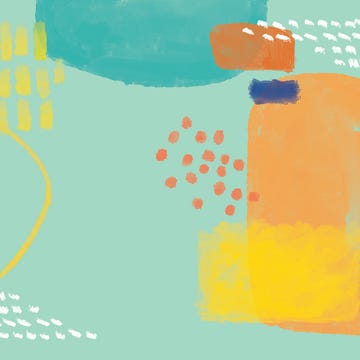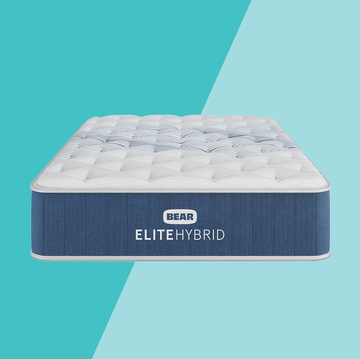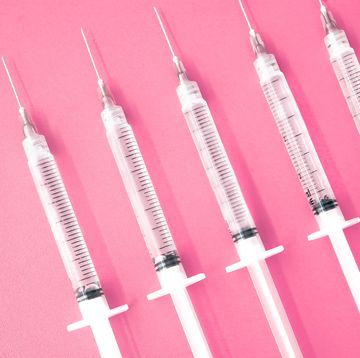Few minor health issues are as pesky as a canker sore, that open wound (a small white ulcer ringed by a red halo) that stings and aches when you eat, drink, or just swallow.
“The cause of a canker sore can be different for each person,” says Sarah Glass, D.D.S., an assistant professor at Virginia Commonwealth University School of Dentistry. Forming on the tongue or inside the lip or cheek, they’re more common in women than in men. They can result from an inadvertent bite or another oral trauma, but stress, hormonal fluctuations, allergies, and nutrient deficiencies can also bring them on.
Though canker sores seem similar to cold sores, the two are completely different; cold sores are caused by a virus and are contagious, while canker sores can’t be spread. If an ulcer sticks around longer than two weeks, see a doctor: It may have become infected or be a symptom of a more serious condition such as celiac disease, Crohn’s disease, or oral cancer. Here’s how to keep canker sores at bay and what to do if one does develop.
How to prevent canker sores
✔️Mind your diet.
Not getting enough B vitamins, zinc, and iron may make you more susceptible to canker sores. Eat plenty of produce and whole grains, and load up on B12-rich fish like salmon, rainbow trout, and tuna. Limit spicy and acidic foods, which may trigger sores.
“Keep track of when sores occur and note foods that coincide with them to eliminate triggers specific to you,” says Leena Palomo, D.D.S., an associate professor at Case Western Reserve University School of Dental Medicine.
✔️Find your Zen.
Stress is thought to boost the activity of leukocytes, immune cells linked to inflammation throughout the body, including in the mouth, that can trigger a canker sore. Decompress regularly with a favorite chill drill like meditation, a hot bath, yoga, or exercise. “Even just getting a good night’s sleep can help,” Palomo says.
✔️Brush gently.
A slip of the hand while forcefully brushing your teeth can mean your cheek or lip gets jabbed with the hard part of the brush—a common way the stage gets set for a canker sore. “Brush with small circular motions, and avoid aggressively
brushing back and forth,” Glass says.
How to get rid of canker sores
✔️Rinse and repeat.
Swish with a solution of 1 tsp baking soda and 1/2 cup warm water to relieve pain and speed healing. Consider an over-the-counter rinse containing hydrogen peroxide to keep the ulcer clean, and drink water throughout the day to promote production of saliva, which thwarts viruses and bacteria.
✔️Numb it.
OTC or prescription topical anesthetics with lidocaine or benzocaine can numb the sore to relieve pain. A doctor can tell you, based on your sore’s location, whether a rinse, gel, or paste is best. Try Orajel, Anbesol, or Oral B Mouth Sore rinse.
✔️Call the doc.
For severe or chronic canker sores, a doctor can prescribe corticosteroids to help dampen inflammation that causes them to flare. If a bad sore doesn’t improve, ask about cauterization, in which a doctor or dentist burns the ulcer with a laser or a chemical agent. Studies suggest that cauterizing can quickly relieve pain, but it needs to be done in-office by a physician to protect the surrounding tissue.
This article originally appeared in the April 2020 issue of Prevention.
Support from readers like you helps us do our best work. Go here to subscribe to Prevention and get 12 FREE gifts. And sign up for our FREE newsletter here for daily health, nutrition, and fitness advice.

Richard Laliberte is an award-winning veteran health journalist and former senior writer at Men's Health who writes for some of the nation's best-known magazines, blogs for WeightWatchers.com, and has authored several books.
